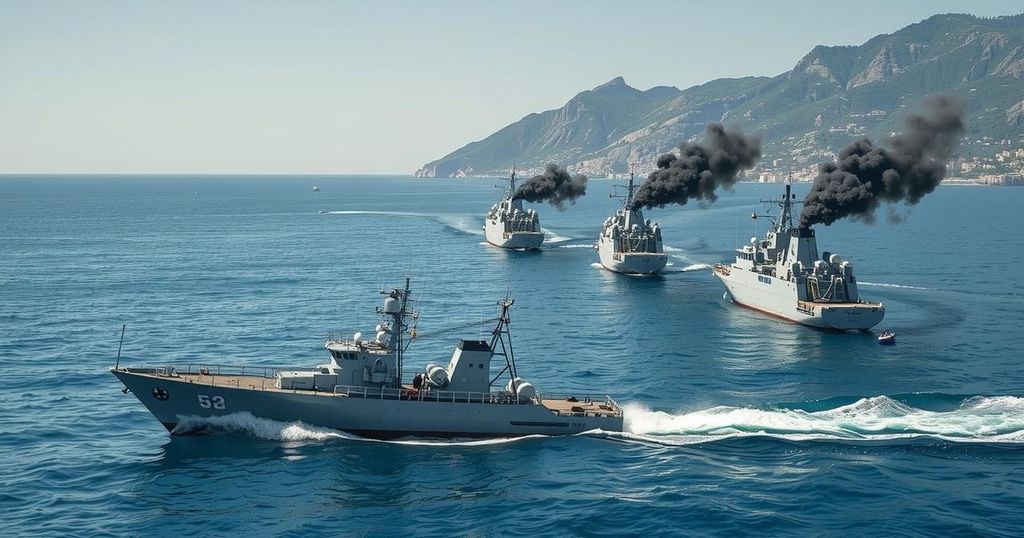Italy has voiced concerns over Russia relocating military assets from Syria to Libya, perceiving it as a significant security threat. With potential Russian naval power shifting closer to Italy, analysts note an uptick in Russian military activity, albeit without confirmed naval movement. The situation becomes more complex with U.S. interests and Turkey’s involvement in the region, suggesting a multifaceted approach to geopolitical negotiations and military arrangements.
Italy’s Defense Minister, Guido Crosetto, has expressed serious concerns about Russia relocating military resources from Syria to Libya. He stated that the movement of Russian ships and submarines into the Mediterranean, particularly closer to Italy, poses a significant security threat. Following recent developments, including the exodus of personnel and material from Russian bases in Syria, satellite images suggest that warships have departed from Tartus, potentially heading to the Libyan port of Tobruk, where Moscow has been negotiating with local leader General Khalifa Haftar. Given that Russia’s ability to maintain a naval base at Tartus is potentially diminishing, Libya emerges as a critical alternative for Moscow’s naval operations in the region.
Analysts indicate that while concrete evidence of Russian naval vessels en route to Libya remains unproven, there has been a noticeable increase in Russian military flights operating in the region. Analysts from the Royal United Services Institute have noted that such flights serve as a substantial logistical support line from Russia to Africa. Despite the uncertain status of Russian warships, there is a clear indication of an escalating presence in Libya, which could signal a strategic pivot for Moscow amidst its challenges in Syria.
Furthermore, the geopolitical dynamics in Libya complicate matters, especially as Haftar has engaged with U.S. officials regarding the future of eastern Libya under his control. However, there is no formal agreement solidifying a Russian military presence, highlighting that what exists may merely be informal arrangements. Additionally, analysts call attention to Turkey’s role in supporting the Tripoli government, suggesting that any discussions involving Russian forces in Libya would need Turkish consent.
In summary, the movement of Russian military assets from Syria to Libya raises critical security concerns for Italy and other Western nations, as this development reflects a potential shift in Russian strategy that could disrupt the existing balance of power in the region.
The movement of military assets from Russia, particularly during a period of instability in Syria, signals a notable change in maritime security within the Mediterranean. Libya’s strategic location and the ongoing political turmoil create a fertile ground for increased military influence, heightening tensions among international actors, especially in light of U.S. interests in the region. The presence of local figures like General Haftar, who has the backing of both Russia and some Western officials, complicates the landscape, adding layers of negotiations and possible conflicts in international relations.
The situation surrounding Russia’s military movements from Syria to Libya is emblematic of larger geopolitical tensions at play within the Mediterranean. Italy’s warnings underscore the potential security risks posed by heightened Russian activity so close to its borders. As negotiations unfold involving local leaders like Haftar and external powers, the implications of these maneuvers could significantly impact regional stability and international relations in the coming months.
Original Source: www.defensenews.com







